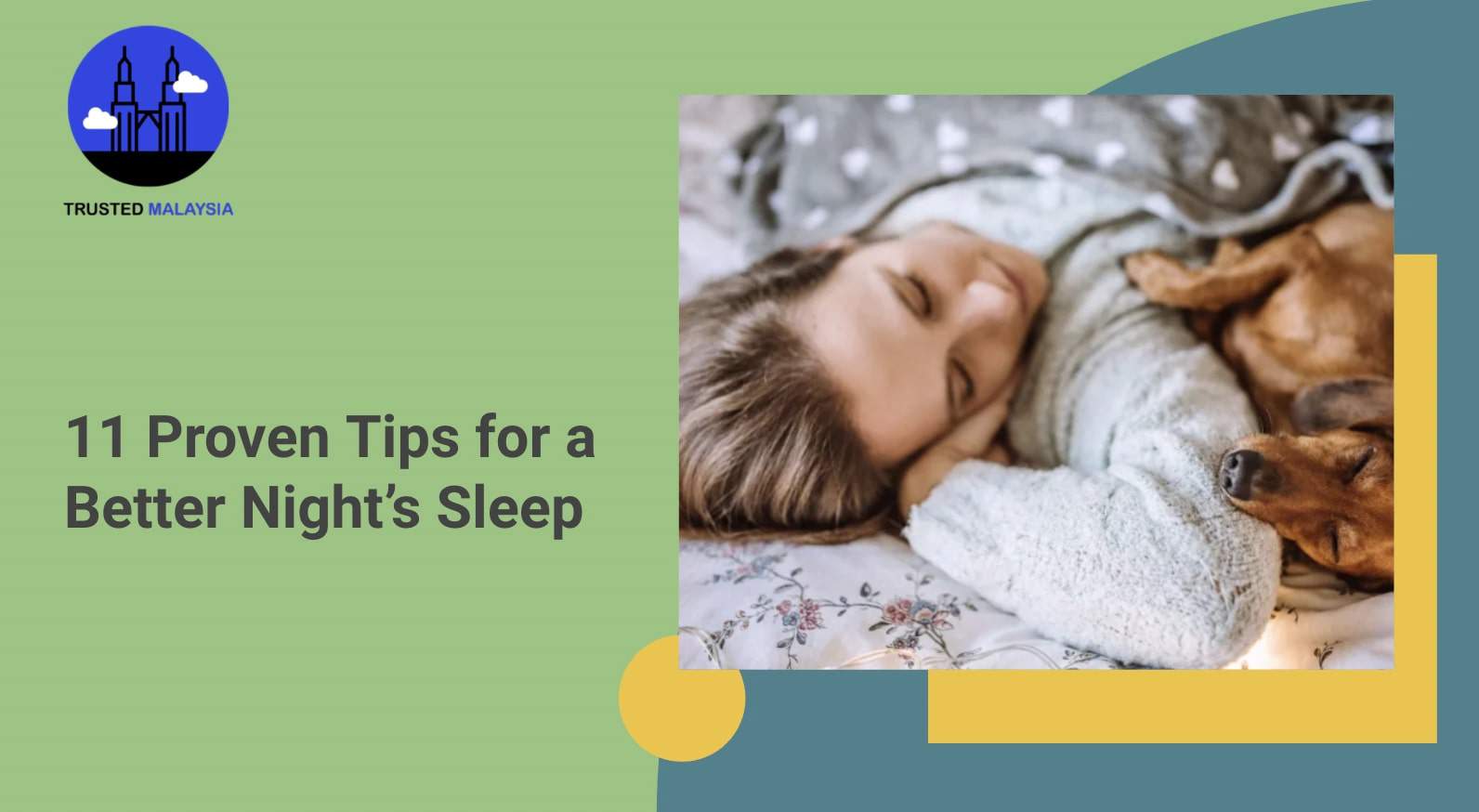11 Proven Tips for a Better Night’s Sleep
Sleep is essential for a person to have optimum health and well-being. But for this, it’s not just any kind of sleep but it should be a full and restful one.
People who lack it have weaker resistance to diseases, hormonal imbalances, and slower brain function. Furthermore, it’s one of the leading causes of obesity and lethargy in going about the day.
So, whether you need to make a drastic change to your sleep lifestyle or are simply adding new knowledge to apply, here are eleven proven tips for a better night’s sleep.
Tip #1 Follow a sleep schedule
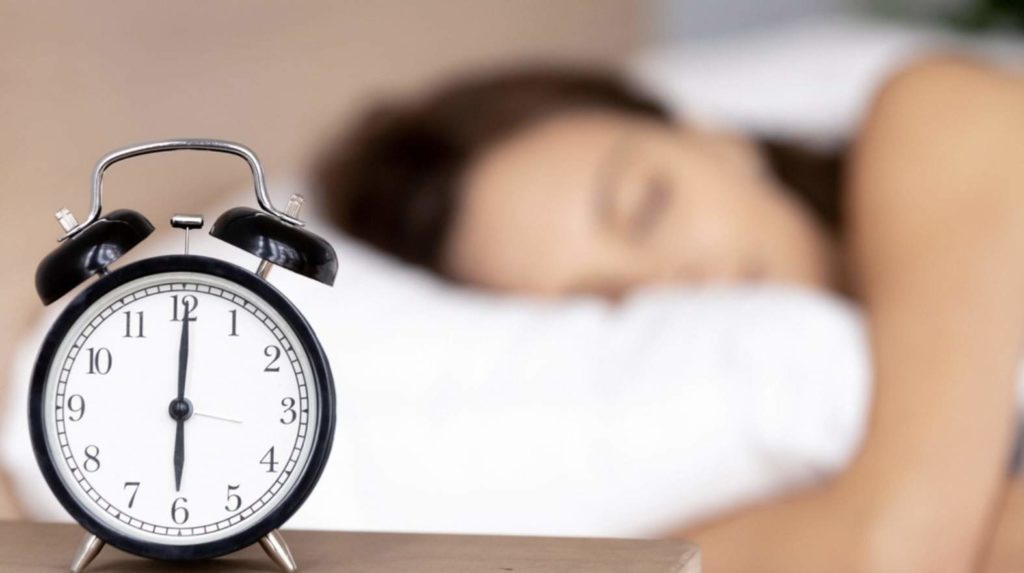
A healthy adult requires at least seven hours of sleep every day, whereas a child from five to twelve years old would need nine to twelve hours of sleep.
Everyone has a sleep-wake cycle programmed in their bodies. People are healthiest when they stick to the same time they sleep and wake up because they can keep it consistent that way compared to those who don’t.
However, it’s understandable that on the weekends, some sleep a lot later. For this, just leave no more than an hour for allowance.
And if you don’t fall asleep after twenty minutes, we suggest reading a book or listening to music a bit. When you get a bit tired, then that’s the time that you should call it a night.
Tip #2 Get some sun exposure in the day
As we said, our bodies have their own sleep-wake cycles, commonly referred to as a body clock or circadian rhythm.
Concerning how it works, the brain secretes a hormone called melatonin. The darker the surroundings, the less the melatonin, whilst the brighter the place, the more the melatonin.
In simple terms, this is responsible for making you more alert and less sleepy during the day.
Based on a research done in 2003, older adults have improved their sleep quality by as much as 80 per cent and also their sleep lasted longer by two hours, after having basked in the sun for two hours in the day.
Although this has been tested on seniors, it also applies to young people. All you have to do is go out in the sun daily for exercising, having breakfast, taking a break, and walking the dog—the closer to the time you wake up, the better.
Note that you don’t have to do it for two hours, just the time to get the activity you’re doing done. You can even just simply open your curtains to let the light into your house or office and stay in it for a bit.
Tip #3 Run or exercise in the morning

Running is a great exercise because most people can do it. All that’s needed is a pair of comfortable running shoes and a path, road, or track to run on.
That said, it doesn’t matter what kind of exercise you do—any exercise can improve your sleep, even if it’s just something quick like walking for ten minutes a day.
More importantly, it can keep you in the deep, restorative sleep stages for a longer duration. Hence, you will wake up feeling healthy, energised, and refreshed as opposed to those who do less exercise or don’t do it at all.
Other than improving your sleep, exercise gives you energy in the day and prevents you from feeling sleepy. It also speeds up your metabolism meaning you can better control your weight with it.
Tip #4 Start the day with a healthy breakfast
Start the day with a nutritious breakfast, perhaps a bowl of cereal and fruit, or bread with peanut butter and yoghurt. This reduces stress, brings up your energy levels, and adjusts your body clock, which tells the body that you should wake up at a certain time.
Skipping breakfast in the morning not only makes you fatigued and unproductive at work but it can also affect your sleep quality later in the afternoon or night.
Tip #5 Create a relaxing bedroom surrounding
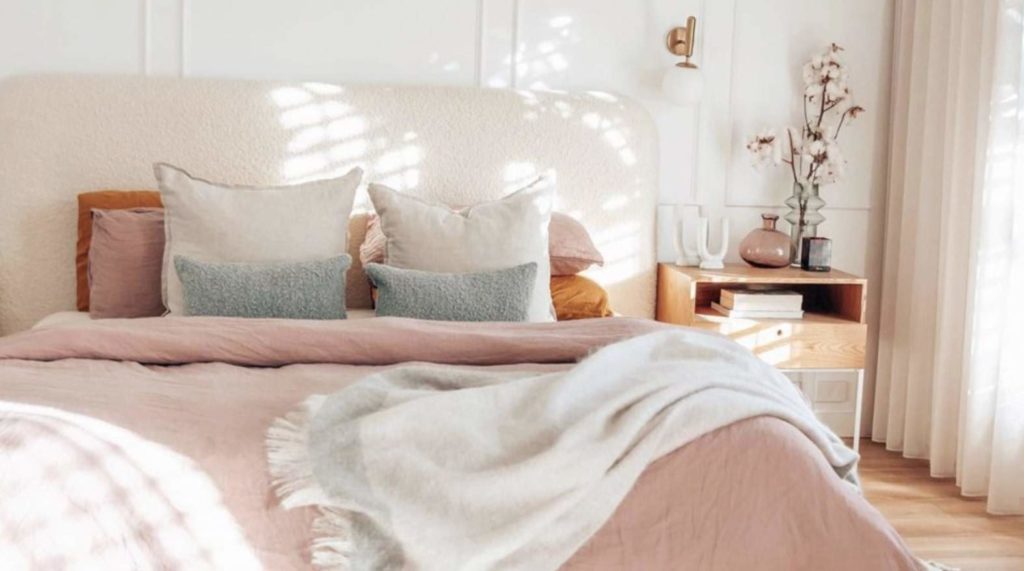
You can immediately have a better night’s sleep by creating a relaxing bedroom surrounding. The main things you can change for this are comfort, noise, artificial light, and temperature.
First is comfort, you can’t sleep well if the bed is too firm and makes you ache all around the body when waking up. A solution to this can be to replace the mattress, use a mattress topper, and use a comfy pillow to keep your body in the correct posture all the time during sleep.
Next, ensure that the noise is minimal or turned off on your devices like a TV or Bluetooth speaker. If loud music can wake up the neighbours and make them mad, what more for you?
Besides that, you should turn off or just reduce the lights in the room to sleep more comfortably. But, if you find it hard to sleep in darkness, a night light would be a great option.
And avoid blue lights emitted by phones and televisions too, since these can fool your mind and make you think it’s still daytime.
As with the temperature, we all have experienced finding it hard to sleep because of the sweltering weather. In this case, an air conditioner or portable AC can greatly make you sleep better, and regular maintenance of the AC is needed to avoid any sudden cooling issues and extend its lifespan.
Tip #6 Don’t drink alcohol before going to sleep
Though alcohol may act as a depressant and help you drift off to sleep, it can disrupt your natural body clock and cause you to wake up and sleep inconsistently through the night.
Based on a study, alcohol can alter the hormone production of melatonin and human growth hormone (HGH). Aside from intermittent sleep, it can cause snoring and sleep apnea.
Tip #7 Clear the mind and let go of your worries
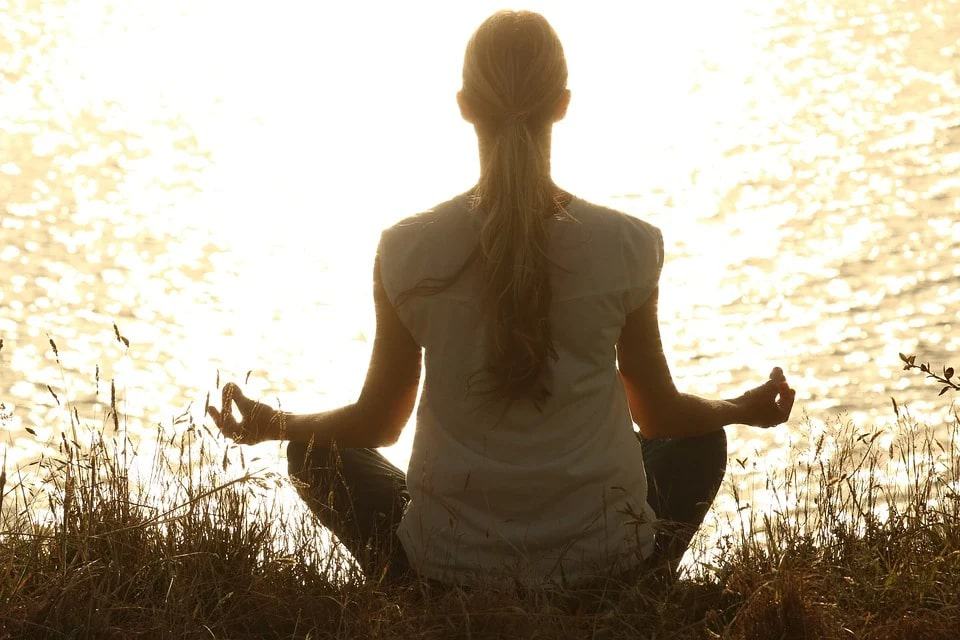
There are different ways of clearing the mind at night. One easy way is to stay present by being aware of your breath, listening to the hum of the aircon, feeling your inner body glow, amongst other practices.
If you have any inspired thoughts or things to do that you’d want to remember or can’t leave your mind, write them down in a journal so you can come back for it tomorrow.
Also, it’s not uncommon that we go to sleep worrying. Maybe you have had a rough day, maybe you have an anxiety disorder, panic attack, or anything like that, but you should practise dealing with them and letting them go, if possible, for a calm and rejuvenating slumber.
Tip #8 Maintain a correct sleeping posture

Whether you’re a front, side, or stomach sleeper, you have to lie down correctly so your body feels comfortable. Your neck, shoulders, and arms should not be strained when you’re in slumberland.
Just remember to keep your body relaxed at all times. To reduce stress on the lower back, put a pillow underneath your knees, or if you’re a side sleeper, put it in between your knees.
Moreover, make sure that the bed isn’t space-restricted with a mountain of clothing, books, or electronics there. This way, you can sleep with your arms and legs stretched out without any hindrance.
Some people struggle to sleep due to a sleeping disorder, aching joints, or depression. And they use essential oil diffusers because these can alleviate pain, elevate mood, and make them relaxed.
Tip #9 Limit afternoon naps
A nap helps replenish your flagging energy from work come afternoon, but limit it up to thirty minutes. This way, your sleep later at night will be sound and ample.
If you’ve lost sleep the night before due to work or bingeing Netflix, it’s also important to catch up by napping. Or if this isn’t possible, make it a point to sleep earlier in the night—aim for seven hours’ sleep at least.
Tip #10 Take a relaxing shower or bath
Research indicates that taking a warm shower or bath can aid young adults and seniors in sleeping. Preferably, it should be done in an hour to an hour and a half before you sleep.
The rapid stream of water to your hair and skin unfailingly relaxes you and clears out your worries. This is perhaps because it keeps you focused in the present moment—no past, no future, no mind.
However, if you don’t have the time to shower in the evening, you can just take a basin, fill it up with lukewarm water to slightly more than half, and soak your feet in it for a soothing effect and improved sleep.
Tip #11 Clean your bedroom regularly
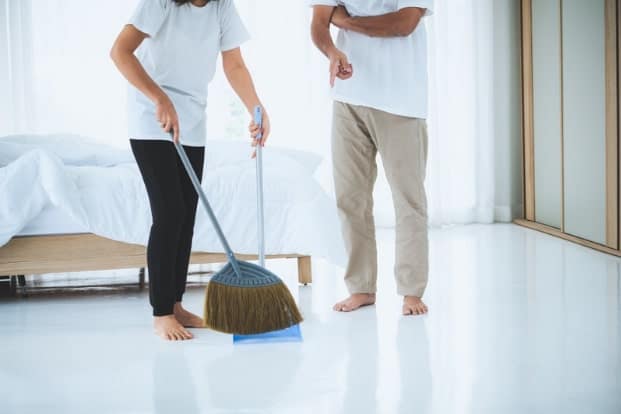
You must regularly clean your bedroom for a better night’s sleep. Every few months, your bedding should be washed and replaced so that it remains clean and fresh for everyone.
But since this can be an extra chore, people opt for mattress protectors to keep out sweat, oil, moulds, and mildew from the mattress. That means nothing in it can make you cough, sneeze, or itch whilst sleeping.
Additionally, it helps to vacuum your bed daily to suck in the invisible dirt and dust, which will add to the overall physical and mental comfort you feel when lying down.
Alternatively, having an air purifier or dehumidifier will keep your room air hygienic and free from musty odours coming from soiled sneakers and clothes. Although these appliances are expensive, they can also help to make your room beautiful and fresh, conducive to sleeping.
Conclusion
You can feel stronger, happier, and healthier by sleeping well every day. But, remember that it’s only one part of a healthy lifestyle, with regular exercise and a healthy diet being the other two.
In this article, we have discussed some things you can do to get a better nights’ sleep, all of which are fairly easy to make into a habit—if your work schedule and circumstances permit.
That said, if there are severe symptoms you feel that interfere with your sleep, it may be best to consult with a doctor or sleep specialist. They can diagnose your condition and come up with an effective solution so your sleep will be cosy and undisturbed.

